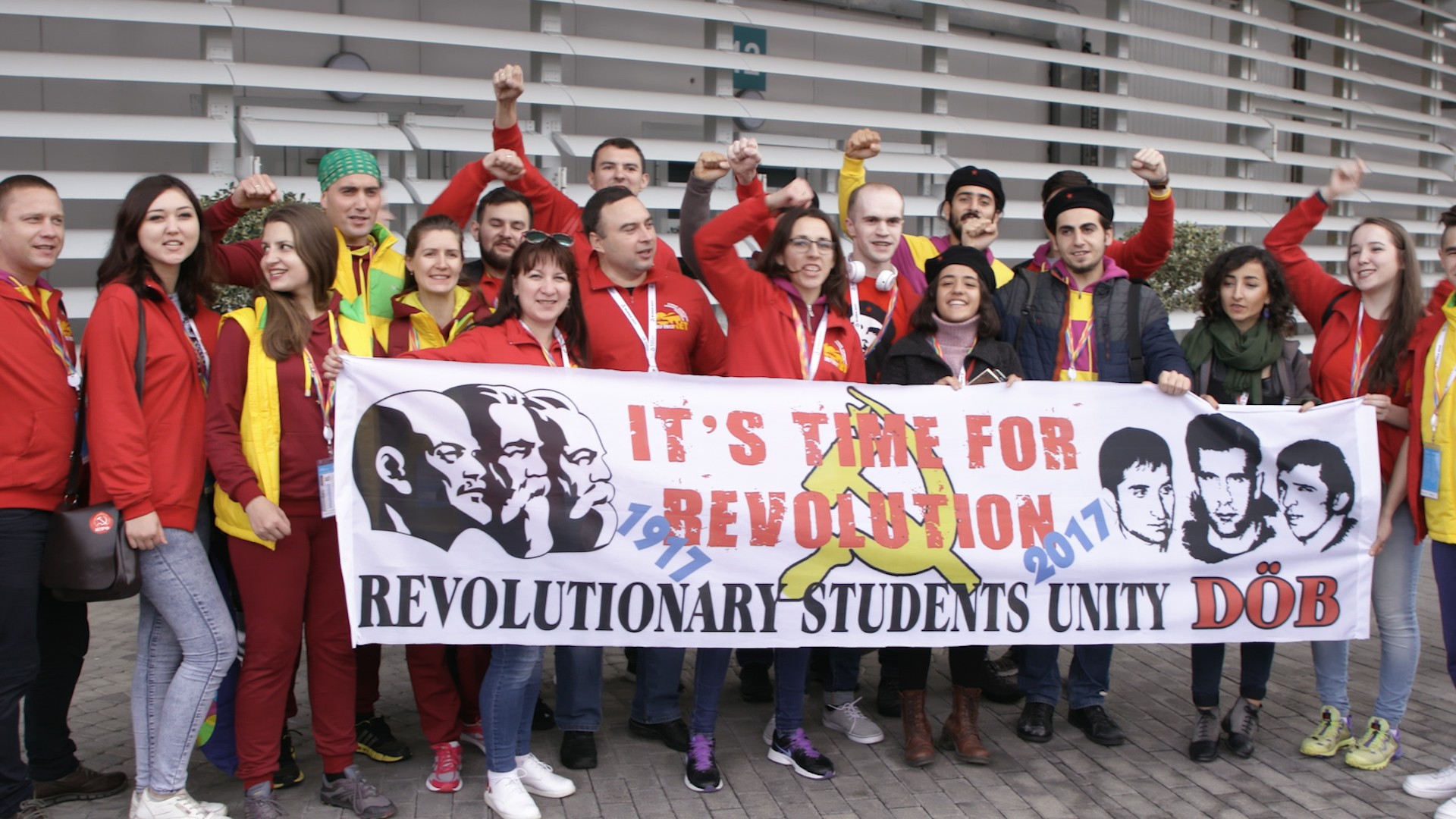When news broke Tuesday that Russia has been banned from the 2018 Winter Olympics for its massive and illegal doping program, the Kremlin turned to a finely honed response that it’s been perfecting for years: We’re the real victims here.Russian President Vladimir Putin called the move “unfounded” and “politically motivated,” and questioned the “mental state” of former Russian anti-doping lab chief Grigory Rodchenkov, who blew the lid off the scandal. And former Soviet leader Mikhail Gorbachev blasted the decision as “a disgrace,” saying it would only undermine the games themselves.Naturally, the Kremlin’s gang of Twitter bots joined in as well.Within minutes of the news, the International Olympic Committee acronym, IOC, leapt to the top of the trending hashtags tracked by Hamilton 68 dashboard, a tool that monitors Twitter accounts thought to be linked to Kremlin-backed propaganda efforts. Hamilton 68 was set up by a group of U.S. intelligence experts called the Alliance for Securing Democracy, dedicated to uncovering Russian influence in the American democratic process.“The reaction shows, quite clearly, that the narrative being formed around this decision is politically driven,” said Bret Schafer, an analyst with Alliance for Securing Democracy who works on the Hamilton 68 project. “It’s being cast as a tool to discredit Russia and keep Russia down.”Putin, who frequently portrays Russia as a victim of the West’s double standards, seemingly used the occasion to formally announce his bid for a fourth presidential term.The accounts tracked by Hamilton 68 typically push out stories related to the conflicts in Ukraine or Syria, along with other unrelated hot-button subjects aimed at just building followers, Schafer said. But after Tuesday’s decision, the IOC shot up like a rocket.They immediately began circulating stories by state-backed news empire RT and other websites discrediting the move.One website promoted by the Kremlin-linked accounts called Fort Russ offered up an analysis titled “The Olympics as a Tool of the New Cold War.”The site suggested that banning Russia from the games might really be an attempt by nefarious international forces to undermine Putin’s reelection to a fourth term in the vote, set for early 2018.
Advertisement
Advertisement
“Such difficulties would create pressure on Putin’s presidential campaign, if he is running, based on the dissatisfaction of society at large if ‘government-sponsored doping’ is to blame,” the site wrote. “At that, the World Anti-Doping Agency (WADA) has no concrete evidence that this is the case.”The Kremlin-bots linked to articles on RT that sought to cast doubt on the doping allegations, and took personal aim at the Russian doping-program whistleblower Rodchenkov. One article distributed clips purporting to show Rodchenkov calling himself a “terrible person” who has “sold his soul.”Memes proliferated, too, although Hamilton 68 doesn’t track them specifically.Shafer said the tool doesn’t determine whether any given Twitter account is definitively linked to Kremlin propaganda efforts, but that the broader message about the Olympic decision is in line with Kremlin attempts to portray Russia as a victim of Western political machinations.“Russia as the victim of the West is a consistent message we’ve seen from the start,” Schafer said. “Whether it’s Ukraine, Syria, or fake news — actually, the West are the aggressors, and Russia’s on the defensive. It’s a very consistent narrative that we see.”“Russia as the victim of the West is a consistent message we’ve seen from the start.”
Advertisement
The message being broadcast over social media about the Olympic decision is “a message of defiance, of national solidarity,” said Ben Nimmo, information defense fellow with the Atlantic Council’s Digital Forensic Research Lab, who tracks Russian propaganda efforts online.Nimmo pointed out that in the run-up to the IOC’s decision, the hashtag #NoRussiaNoGames was actively promoted by the television station run by the Russian Ministry of Defence, TV Zvezda.“It’s not just a Russian government-backed hashtag; it’s a Russian military-backed hashtag,” Nimmo said.On Dec. 2, Russia’s military TV channel ran a story saying the hashtag was gaining popularity, even though it had only about 1,000 tweets the day before, according to Nimmo’s analysis.On Tuesday, the channel’s presenters appeared on Russia’s military TV channel wearing “No Russia No Games” shirts.Though the #NoRussiaNoGames hashtag didn’t pick up much steam, it did win one particular adherent.On Wednesday, French actor and renowned Russophile Gerard Depardieu picked up the hashtag with gusto.“It’s not just a Russian government-backed hashtag, it’s a Russian military-backed hashtag.”
